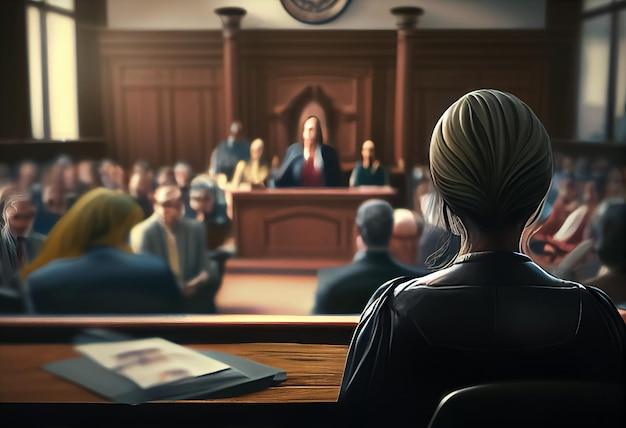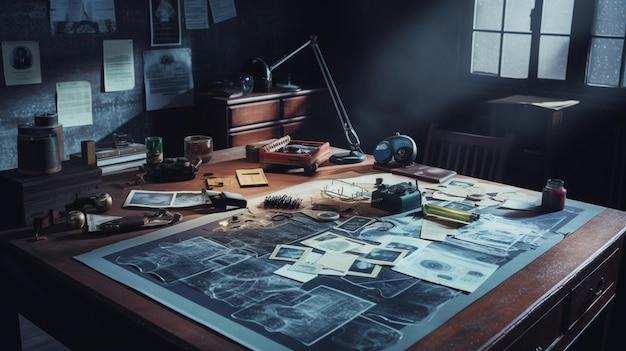Forensic evidence has long been hailed as a cornerstone of criminal investigations and courtroom proceedings. From DNA analysis to fingerprint matching, these scientific methods have played a vital role in determining guilt or innocence. However, as technology advances and our understanding of forensic science deepens, it becomes increasingly apparent that there are significant problems with relying on this evidence alone.
One of the most glaring issues with forensic evidence is its fallibility. Despite its portrayal in popular media as infallible, the truth is that forensic techniques are subject to error and misinterpretation. In some cases, the reliance on flawed forensic methods has led to wrongful convictions. As we explore this topic further, we will delve into the most common forensic criminal evaluations and examine just how reliable they truly are.
The use of forensic evidence in the courtroom has also come under scrutiny due to the lack of standardized procedures and training. Not all forensic experts receive the same level of education or adhere to uniform practices, leading to inconsistencies in analysis and testimony. This lack of standardization poses the risk of introducing bias and unreliability into crucial legal proceedings.
Join us as we delve into the realm of forensic evidence and its use in the courtroom. We will uncover the problems and limitations associated with these practices, shedding light on the often overlooked flaws in our criminal justice system.

What are some of the issues with forensic evidence and its use in the courtroom?
Forensic evidence plays a critical role in our legal system, but it’s important to acknowledge that it’s not without its flaws. Let’s explore some of the problems that can arise when using forensic evidence in the courtroom.
The Fallibility of Eyewitness Testimony
Eyewitness testimony has long been considered a powerful tool in the courtroom. However, studies have shown that it can be notoriously unreliable. Our memories are malleable, and the passage of time, stress, and other factors can distort what we perceive and recall.
The Subjectivity of Expert Analysis
When it comes to forensic evidence, the analysis and interpretation often rest in the hands of experts. While these professionals undergo extensive training, there is still room for subjective judgments. Different experts may interpret the same evidence differently, leading to conflicting opinions that can confuse the jury.
Human Error in Forensic Laboratories
Forensic laboratories are where the magic happens, or so we think. But the truth is, they are not exempt from human error. From mishandling evidence to misinterpreting results, mistakes can and do happen. Even the most well-intentioned and skilled scientists are not immune to the pressures and limitations inherent in their work.
Lack of Standardized Practices
One of the biggest challenges with forensic evidence is the lack of standardized practices across different labs and jurisdictions. This inconsistency can create significant disparities in the quality and reliability of forensic evidence presented in court. The absence of uniform guidelines and protocols increases the risk of errors and leaves room for doubt.
Technology Limitations
In today’s technology-driven world, we tend to place a lot of trust in scientific advancements. However, technological tools used in forensics are not infallible. From DNA analysis to fingerprint matching, there have been instances where faulty technology or improper usage has resulted in wrongful convictions. It’s imperative to remember that technology is only as reliable as the people who operate it.
The Influence of Bias
We’d like to believe that the justice system is objective, but bias can seep into forensic analysis and its interpretation. Unconscious biases, such as confirmation bias or racial bias, can impact decision-making, leading to skewed results. Recognizing and addressing these biases is crucial to ensure a fair and just legal process.
While forensic evidence has proven instrumental in solving countless crimes, it’s important to approach it with a critical eye. Acknowledging the limitations and challenges can help us improve the use of forensic evidence in the courtroom, ensuring that justice is served accurately and fairly.

FAQ: Problems with Forensic Evidence in the Courtroom
What is the most common type of forensic evaluation used in criminal cases
In criminal cases, the most common type of forensic evaluation is the analysis of physical evidence. This includes examining fingerprints, DNA samples, ballistics, and other types of evidence that can help establish or refute a suspect’s connection to a crime.
How reliable is forensic evidence in criminal cases
Forensic evidence can be a powerful tool in criminal cases, but its reliability can vary. While advancements in forensic science have significantly improved the accuracy of analysis techniques, there have been instances where errors or biases have occurred. It’s important for forensic evidence to undergo strict scrutiny, ensuring the reliability of results and avoiding potential miscarriages of justice.
What university has the best program for studying forensic psychology
Several universities offer renowned programs for studying forensic psychology. One notable institution is John Jay College of Criminal Justice in New York City. Their program is highly respected and provides comprehensive training in the field of forensic psychology.
What is the difference between forensic psychologists and forensic psychiatrists
Forensic psychologists and forensic psychiatrists both specialize in the intersection of mental health and the legal system. However, the main difference lies in their educational backgrounds. Forensic psychologists hold a doctoral degree in psychology, while forensic psychiatrists are medical doctors with specialized training in psychiatry.
Do forensic psychologists work in hospitals
Yes, forensic psychologists can work in hospitals, specifically in forensic psychiatric units. These units specialize in assessing and treating individuals who are involved in legal proceedings and require mental health evaluation and care.
Where do forensic psychologists earn the most money
Forensic psychologists tend to earn higher salaries in metropolitan areas with a high cost of living. Cities such as New York, Los Angeles, and San Francisco often offer higher compensation for professionals in this field.
Is forensic psychology a bachelor’s or master’s level program
Forensic psychology is typically a field of study that is pursued at the graduate level. Students aspiring to become forensic psychologists generally need to pursue a master’s degree or a doctoral degree in psychology with a focus on forensic psychology.
What are forensic settings
Forensic settings refer to the environments in which forensic psychologists work. These can include prisons, correctional facilities, forensic psychiatric units, rehabilitation centers, and courtrooms. Forensic psychologists often assess individuals, provide expert testimony, and contribute to the legal decision-making process.
What are some of the problems with forensic evidence and its use in the courtroom
While forensic evidence can be valuable, there are several problems associated with its use in the courtroom. These include potential biases in the interpretation of evidence, errors during analysis, inadequate quality control measures, the influence of subjective expert testimony, and challenges with explaining complex scientific concepts to the jury in a way they can understand.
How often is forensic science incorrect
Forensic science, like any other field, is not immune to human error. While it is difficult to determine an exact percentage, studies have shown that there have been instances where forensic science has led to wrongful convictions or unreliable conclusions. It is crucial to continuously improve forensic techniques and ensure proper oversight to minimize the occurrence of errors.
Is it easy to find a job as a forensic psychologist
Finding a job as a forensic psychologist may require effort and patience. The demand for forensic psychologists can vary depending on geographical location and other factors. Networking, gaining experience through internships or volunteer work, and obtaining advanced degrees can enhance job prospects in this competitive field.
What is a forensic psychological assessment
A forensic psychological assessment is an evaluation conducted by a forensic psychologist to examine an individual’s mental state and its relation to legal matters. It involves the assessment of personality, cognitive functioning, and potential risk factors, aiming to provide expert insights that inform legal decision-making processes.
By addressing these frequently asked questions, we hope to shed light on the problems associated with forensic evidence in the courtroom. While forensic science plays a crucial role in criminal investigations, it is essential to acknowledge the challenges and strive for continuous improvement to ensure accurate and unbiased outcomes.
